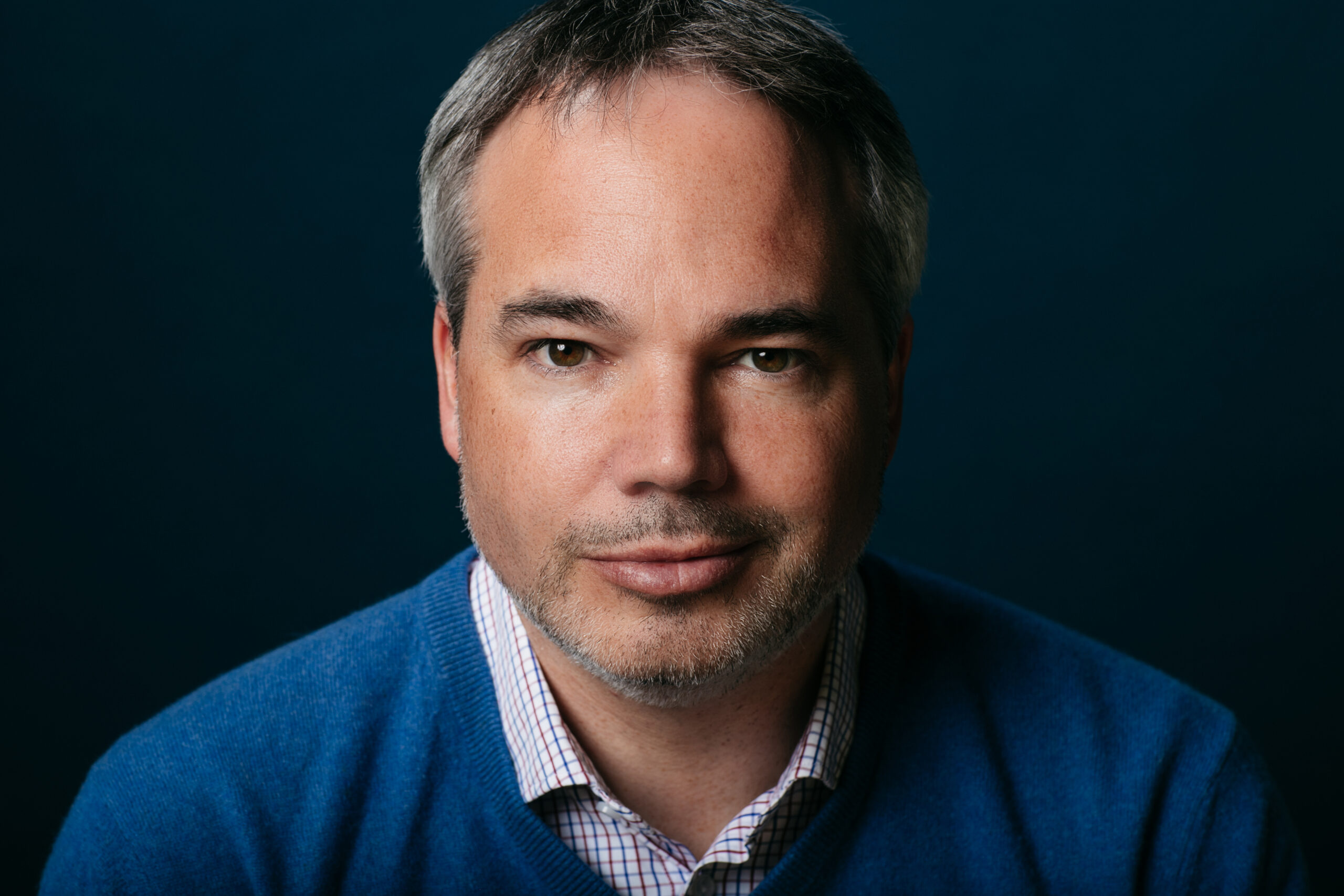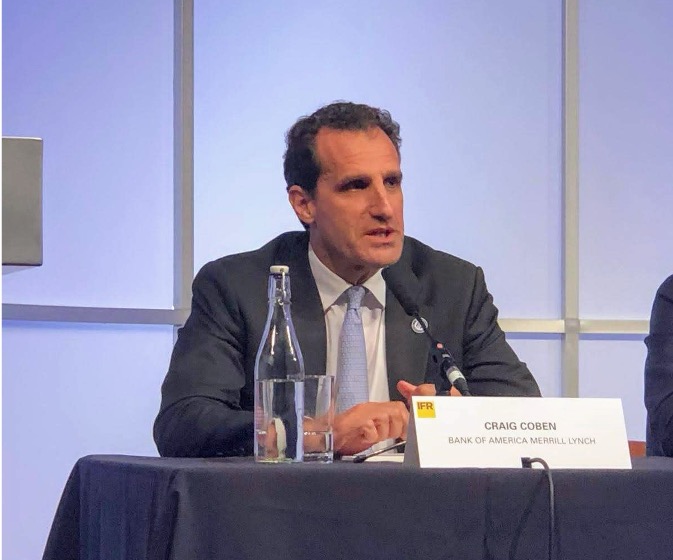Mark Branson has been a Director of FINMA since 1 April 2014. The British-Swiss dual citizen and former investment banker is confronted with a dynamically changing Swiss financial industry. He comments on the state of the Swiss Financial sector and explores on regulation for sustainable investing.
Mark Branson, you have been CEO of FINMA for five years. How has this institution changed over the course of your employment and how do you plan to shape it in the future?
I have been at FINMA almost since its start ten years ago. Born in the financial crisis, FINMA needed to find its feet rapidly, and has since grown into a respected, robust and independent institution. Having the chance to take over the reins five years ago was of course a great privilege. But it enabled me rather to continue the course we were already on than change direction: delivering ever more professional, direct, risk-oriented and credible supervision.
After the financial crisis we saw a tremendous amount of new regulation introduced in Switzerland but also on a global scale. Over the years, Finma has expanded significantly, from 328 full-time employees in 2009 to 534 in 2017. Is this an indicator of over-regulation in the financial industry?
No, the targeted increase in our resources in the four years after the crisis was necessary, independent of the changes in the regulatory environment. It was more a matter of learning from the lessons of the financial crisis. Supervision before the crisis was not sufficiently direct and was understaffed for the scale of the challenge. Expectations of supervisory authorities rightly increased following the crisis, worldwide. Supervision could no longer credibly be carried out as desk work or devolved to audit firms. This meant that growth was necessary at first – more but also more experienced staff. Since 2014, staffing has been stable. We need to realise efficiencies ourselves to invest in combatting new and emerging risks.
Switzerland has the potential to become a major player in the FinTech ecosystem. However, this requires innovative and dynamic regulation. Yet in recent years Finma has shown a rather pragmatic approach by acting on a case-by-case basis. Where does FINMA stand on FinTech companies and where do you see major challenges for Finma in adapting to these innovative business models?
Innovation is important for the future of our financial centre. New technologies offer new chances here. On the one hand, we try to make sure that innovators do not fail to succeed due to unnecessary regulatory hurdles. One example of this is the introduction of the new FinTech licence, available since the beginning of 2019 and which we initiated. On the other hand, however, we systematically take action against business models that attempt to circumvent the law under the guise of innovation or new technologies. Let me put it like this: FINMA says “yes” to innovation, but “no” to financial crime.
Do you observe an increasing cyber threat level to the financial sector due to technological innovations, e.g. digitalisation within banks or FinTech companies in general?
We view cybercrime as the top operational risk for the financial industry. As you say, the risks are increasing as a result of digitalisation. Increased outsourcing also plays a role here. Overall the banks and other financial market players seem to be well aware of the risks. For obvious reputational and financial reasons it is in their own self-interest to manage these risks. But this does not mean that they are all equally well prepared. In some cases IT infrastructure is outdated. We as FINMA have increased the intensity of our supervision in this area, have recruited specialists with the necessary expertise and will allocate still more resources going forward. We must have the people who can ask the right questions and analyse and assess the answers, in this very technical area. But the risks do not only affect the individual financial institutions. They can affect the whole system. Switzerland needs a defence mechanism for dealing with cyber risks across the entire system.
Due to the recent low interest rate environment, many investors are seeking alternative investments. As a consequence, real estate prices have surged. Is this at all worrying given where we came from in the last financial crisis?
As you say, supposedly attractive investment opportunities are rare. This is encouraging more people to invest in real estate. We have seen extremely strong growth in mortgage lending. This amount has doubled in Switzerland over the last 15 years! Initially we were concerned about the growth in mortgages for people financing their own home, but here growth was successfully slowed. In recent years we have turned our focus to investment properties, or so-called „buy-to-let“. Growth remains as strong as ever here: high levels of construction activity, high prices and also record-high vacancy rates. Just imagine a city the size of Bern or Lausanne standing completely empty. Overall it is a risky mix. We will therefore continue to focus on this area.
You used to work in banking and decided to move to a regulator. Has this experience at all affected the way your institution approaches banks and designs its regulatory endeavours?
In general, as a supervisory authority it is beneficial to have employees with industry experience who know the business. We rely on that for our direct supervision. To ask the right questions we need practical and not just theoretical experience and expertise.
You studied mathematics. Were there any specific factors that led you to pursue a career in finance and regulation as opposed to a career in academics?
At English universities – back then, at least – a student’s choice of degree was not necessarily motivated by a desire for a career in a particular sector. Things were less cut and dried. It was about being interested in pursuing a specific subject in depth. It was about so-called „training for the mind“. The career thereafter was not predetermined by the choice of degree.
In your opinion, what are the most effective means of mastering the balancing act of ensuring security and stability in the financial sector and remaining attractive as a location for international financial institutions?
Firstly, security and stability are by no means incompatible with competitiveness. They can even be a competitive advantage, particularly for secure and stable Switzerland! It is difficult to say where the limits of this balancing act lie. It is clear that credible international standards provide a good point of reference today. As far as calibrating financial safety requirements is concerned, as a small economy with a large financial industry Switzerland has decided to err on the side of stability, and rightly so. Regarding the question of how in detail business should be conducted, Switzerland is comparatively liberal and very principle-based. Here we try to keep complexity as low as possible. But ultimately it is always a combination of factors that make a financial centre competitive. This goes beyond purely regulatory issues. And Switzerland has plenty of trump cards to play here.
For the last ten years we have seen continuous economic growth, yet recently an increasing number of financial analysts have predicted a downturn in the economy. How fit is the Swiss financial sector to overcome these challenges and where do you still see potential for improvement?
Fundamentally, the financial sector in Switzerland is healthy and well capitalised. But there are big challenges. Virtually all financial intermediaries – and this applies across much of the world – are negatively affected by the prevailing low or negative interest rate environment. But such challenges also make market participants fitter. The scarcity of investment opportunities and tendency towards overheating if interest rates remain low is one issue. The potentially turbulent consequences of an exit from the low interest rate environment are another.
Banks in the Swiss financial sector, and primarily our systemic banks, have been in the focus of foreign authorities for some time, most recently UBS in France. How does Finma engage in this dialogue with the management of the accused banks?
Here we are dealing with legacy issues from a time when cross-border wealth management operated under very different circumstances in Switzerland. But a lot has changed– just think of the automatic information exchange between tax authorities. However, we do of course monitor closely how institutions are dealing with these kind of legacy issues.
Will Mark Branson ever return to a financial institution as a board member or CEO?
There are no plans to do so. I am completely focused on my current role.
Larry Fink recently predicted that within five years everyone would calculate the value of a business through its impact on society, politics and the environment. Do you agree? And do you think a shift away from traditional, financial valuation methods would be at all possible?
If the question is whether political, regulatory or environmental risks are important in how a company is valued, then the answer is yes. Such risks can strongly influence a company’s future growth prospects.
Many companies voluntarily publish a Corporate Social Responsibility Report. Should this be mandatory, and would it have an impact on the way companies engage in business?
Glossy reports can be fig leaves or a form of „greenwashing“. I see more merit in identifying and disclosing sustainability-related risks in a structured way.






